TABLE OF CONTENTS
Best Maghrebi Foods
MAIN INGREDIENTS
Known as karantika in Algiers and calienté in Morocco, this beloved traditional dish traces its origins back to Spanish influence during the colonial period, as its name is derived from the Spanish word calentita, which means "warm." Over time, what began as a humble, filling meal for the working class evolved into one of Algeria’s and Morocco's most cherished street foods, often enjoyed by people of all ages and backgrounds.
The essence of the dish lies in its simplicity and rich, comforting flavor. It is made from a smooth batter of chickpea flour, water, oil, salt, pepper, and eggs, which is then baked until it develops a golden, slightly crisp crust on top while remaining creamy and custard-like inside.
Tamina is an ancient Algerian sweet treat consisting of toasted ground semolina, butter, and honey. It is typically decorated with cinnamon or sugared almonds. Traditionally, it is served when celebrating the birth of a child, but it can be prepared any day of the year.
Tamina is usually shared between a few people, as it is served in small plates and consumed with small spoons.
Sfinz is a traditional fried pastry made with a dough consisting of flour, sugar, yeast, salt, and water. The dough is shaped into small balls which are then flattened to form a thin layer of pastry. After it has been fried, sfinz is typically enjoyed with honey, although it can also be fried with an egg on top.
Also known as Libyan doughnut, this fried pastry is especially popular for breaking the fast during Ramadan, but it can also be served for breakfast. If there is any leftover dough, Libyans usually transform it into herb bread.
Rfissa is a traditional dish of stewed chicken pieces, onions, and lentils served over shredded msemmen, old bread, or trid pastry. The full list of ingredients is as follows: chicken, onions, saffron, ginger, lentils, msemmen, fenugreek seeds, and ras el hanout.
The dish is traditionally served on the third day after the birth of a child or for similar festive occasions. It's typically consumed by a group of people gathering around the large dish, and each person then eats from his side of the platter.
MAIN INGREDIENTS
Maakouda are traditional potato fritters that are popular throughout the Maghreb, especially in Morocco, Algeria, and Tunisia. The fritters are usually prepared plain, but they can also be stuffed with meat, tuna, or cheese, although not that often.
They're made with potatoes, parsley, garlic, flour, salt, and pepper. The potatoes are boiled, mashed, and mixed with other ingredients into small disks which are then deep-fried in hot oil until golden brown. Maakouda is traditionally served as an appetizer, a side dish, or an ingredient in a long sandwich roll that's usually sold as street food and served with harissa, coriander, and lemon juice.
MAIN INGREDIENTS
Mahjouba is a traditional flatbread that is one of the most popular street food items in the country. These thick and flaky crepe-like flatbreads are made with semolina, then filled with a combination of tomatoes and caramelized onions. Mahjouba is often paired with harissa sauce on the side, but the condiment is completely optional.
Sfenj are popular Moroccan and Algerian doughnut-like fritters made from sticky unleavened batter, similar to Libyan sfinz and Tunisian bambalouni. The dough is traditionally shaped into rings and deep-fried until it develops a golden, crispy exterior.
The interior should be fluffy, tender, and chewy. These fritters are usually served hot when sold by street vendors, and they can be consumed plain or dusted with icing sugar.
Pastilla is a stuffed pastry from Morocco, also known as b'stilla or bastilla. The rich, sweet and savory pie is filled with an unusual mix of pigeon or chicken meat, eggs, almonds, and cinnamon. It is commonly prepared for special events such as holidays, weddings, or parties.
The name stems from the Spanish word for pastry – pastilla. It is a time-consuming dish, but well worth the effort, as the end result is an incredibly flavorful, crispy warqa pastry, concealing savory meat and spices such as saffron, nutmeg, and ginger, topped with fried almonds and a dash of powdered sugar and cinnamon.
MOST ICONIC Pastilla
View moreMAIN INGREDIENTS
Merguez is a spicy, flavorful sausage that originates from North Africa, particularly Algeria, Tunisia, and Morocco. It is traditionally made from ground lamb or beef, or a combination of both. Merguez is known for its distinctive red color, which comes from the addition of spices such as paprika, chili pepper, and harissa (a hot chili paste).
Other common seasonings include cumin, garlic, coriander, fennel, and sumac. The sausages are typically stuffed into lamb casings and can be grilled, pan-fried, or used in a variety of dishes, including stews, tagines, and couscous. Merguez is popular in North African cuisine and has also become widely enjoyed in France and other parts of Europe.
Tanjia is a unique Moroccan specialty made by cooking lamb meat in a clay urn along with flavorings such as saffron, cumin, garlic, lemons, and olive oil. The dish is especially popular in Marrakech, where the urns are filled with all of the ingredients, then placed in the coals of a public bath (hammam) to slowly cook overnight until the meat is so tender that it falls off the bone.
Originally, tanjia was created and cooked by men who would go on outdoor picnics.
TABLE OF CONTENTS
Best Maghrebi Food Producers
Domaine Adonis is an olive oil producer based in Tunisia. They specialize in high-quality, extra virgin olive oils. Their products are made using traditional cultivation methods combined with modern processing techniques. Domaine Adonis focuses on sustainability and maintaining the natural ecosystem in their olive groves.
The company emphasizes the importance of the terroir, which contributes to the unique flavor profile of their olive oils.
AWARDS

ATHENA IOOC - Double Gold
2024
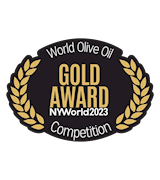
NYIOOC - Gold
2023
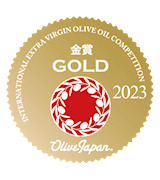
Olive Japan - Gold
2023, 2022, 2020
BEST Domaine Adonis Olive Oils
Noor Fès is a premium Moroccan extra virgin olive oil brand, founded with the aim of recovering the authentic taste of traditional Moroccan olive oil. The company, based in the Fez region, focuses on the high-end market. The olives used in Noor Fès are sourced from ancient Moroccan Picholine varieties.
After years of careful harvesting, Noor Fès was introduced in 2018, quickly becoming a leader in Morocco’s olive oil market. The olive orchards benefit from an exceptional microclimate and pure mineral water streams, contributing to the distinct quality of the oil.
AWARDS

ATHENA IOOC - Double Gold
2024

NYIOOC - Gold
2023

Olive Japan - Gold
2023, 2021
BEST Noor Fès Olive Oils
Olivko is a premium producer of extra virgin olive oil, made from carefully selected olives and cold-extracted to preserve its natural qualities. With a rich aroma, smooth texture, and balanced flavor, Olivko represents the finest Mediterranean tradition.
It is crafted with sustainability in mind, ensuring high quality and purity in every bottle, perfect for gourmet cooking and healthy living.
AWARDS
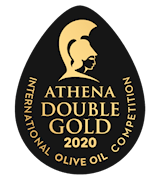
ATHENA IOOC - Double Gold
2020
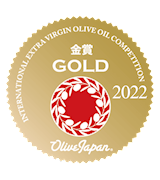
Olive Japan - Gold
2022, 2021, 2018

EVO IOOC - Gold Medal
2022, 2021, 2020, 2018
BEST Olivko Olive Oils
AWARDS

Olive Japan - Gold
2023

EVO IOOC - Gold Medal
2023, 2022

London IOOC - Gold
2023, 2022
BEST Sarl Établissement Kiared Olive Oils
Olive Oil Season is a producer of high-quality extra virgin olive oil from plantations in the Meknes region of Morocco. Their oil is made from the Picholine Marocaine olive variety, renowned for its fruity and slightly bitter aromatic profile. Special attention is given to the handpicking of predominantly green olives at the earliest stage of ripeness, ensuring a high polyphenol content, which contributes to the health benefits and stability of the oil.
After harvesting, the olives are swiftly processed using cold extraction at the Oléastre mill near Meknes, preserving their beneficial compounds and aromas. Their team includes experts such as Markus Siebeneicher, an olive oil sommelier and creative director; Reda Tahiri, the master miller responsible for olive cultivation and the extraction process; and Dalal Najem, a chemist and quality manager who ensures that only the finest olive oil reaches consumers.
AWARDS
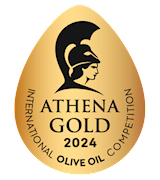
ATHENA IOOC - Gold
2024
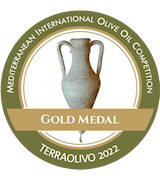
Terraolivo IOOC - Gold Medal
2022

EVO IOOC - Gold Medal
2021
BEST Olive Oil Season Olive Oils
AWARDS

NYIOOC - Gold
2023

Olive Japan - Gold
2023

London IOOC - Gold
2023, 2022
BEST Fermes Ali Sfar Olive Oils
AWARDS

Olive Japan - Gold
2023

London IOOC - Gold
2023, 2021
BEST Terroliva Company Olive Oils
AWARDS
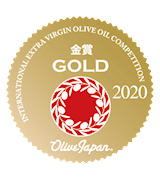
Olive Japan - Gold
2020

Olive Japan - Best of Country
2020
BEST Oleastra Olive Oils
SARL ARBAOLIVE is an olive oil producer based in Blida, Algeria. The company specializes in the production and processing of high-quality olive oil. They are involved in both the cultivation of olive trees and the extraction of oil, ensuring a controlled and consistent product.
SARL ARBAOLIVE is part of the agriculture and agribusiness sector in the region.
TABLE OF CONTENTS
Best Maghrebi Food Products
AWARDS

ATHENA IOOC - Double Gold
2024

OLIVINUS - TOP 20 OLIVINUS 2022
2022

OLIVINUS - Gran Prestigio Oro
2022
AWARDS

NYIOOC - Gold
2023
Tesoro del Rio Chemlali is an olive oil product made by Fermes Ali Sfar. It is crafted from Chemlali olives, which are a traditional variety native to Tunisia, known for their robust and fruity flavor profile. The olives are harvested at peak ripeness to ensure maximum flavor and quality.
Fermes Ali Sfar places a strong emphasis on traditional cultivation techniques combined with modern production standards to create a premium oil that honors its origins.
AWARDS

NYIOOC - Gold
2023
AWARDS

NYIOOC - Gold
2023
AWARDS

NYIOOC - Gold
2023
AWARDS

EVOOLEUM - Top 100
2022
AWARDS

London IOOC - Platinum
2021
AWARDS

London IOOC - Platinum
2021
AWARDS

London IOOC - Platinum
2021
AWARDS

London IOOC - Platinum
2021
TasteAtlas food rankings are based on the ratings of the TasteAtlas audience, with a series of mechanisms that recognize real users and that ignore bot, nationalist or local patriotic ratings, and give additional value to the ratings of users that the system recognizes as knowledgeable. For the “Top 100 Maghrebi Foods” list until April 27, 2025, 16,529 ratings were recorded, of which 3,595 were recognized by the system as legitimate. TasteAtlas Rankings should not be seen as the final global conclusion about food. Their purpose is to promote excellent local foods, instill pride in traditional dishes, and arouse curiosity about dishes you haven’t tried.




























































































































































